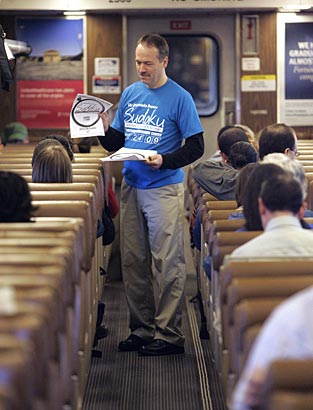Mumbai, December 30, 2009
The winner of the competition will represent India in the world Sudoku finals in Philadelphia in April 2010.
The Sudoku championship will be part of the IIT Techfest from January 22 to 24.
The techfest is the largest science and technology festival in Asia with a footfall of over 60,000 people. This is the first time that IIT-B will be hosting such a competition.
“Sudoku is quite a craze, even on campus, so we thought it would be interesting to host it. Also, this would add to the appeal of the Techfest,” said Nikhil Kashid, media manager, Techfest 2010.
The competition will be the Indian leg of the 5th World Sudoku Championship, which is conducted by the World Puzzle Federation, an international organisation dedicated to puzzles. It follows the Olympic standard and brings together puzzlers from around the world.
The event will have two elimination rounds. The first will be done through online screening and spot screening during the festival. The online screening will be held on January 3 and 9. Indian nationals, irrespective of age, can register at the Techfest website.
The puzzle content and competition will be organised by Logic Masters, a group of puzzlers who have represented India at various world championships. The team had also organised the 3rd World Sudoku Championship in Goa.
The first World Sudoku Championship was held in Lucca, Italy, from March 10-12, 2006.
“Usually only the working population participates in the competition. We wanted to expand the reach of the championship, especially to college students, and Techfest is the perfect platform because of its popularity,” said Amit Sovani, publicity head, of the Bangalore-based Logic Masters.
hindustantimes












 Dave said: "As well as being beautiful and majestic creatures, koi have an aura about them and are very perceptive and sensitive to what is going on around them.
Dave said: "As well as being beautiful and majestic creatures, koi have an aura about them and are very perceptive and sensitive to what is going on around them. Once they’ve paid a £50 entry fee, entrants complete an online Sudoku puzzle to receive a place in the prize competition to win the stylish detached home, complete with sauna and steamroom, on Lancashire’s picturesque Fylde coast.
Once they’ve paid a £50 entry fee, entrants complete an online Sudoku puzzle to receive a place in the prize competition to win the stylish detached home, complete with sauna and steamroom, on Lancashire’s picturesque Fylde coast.




